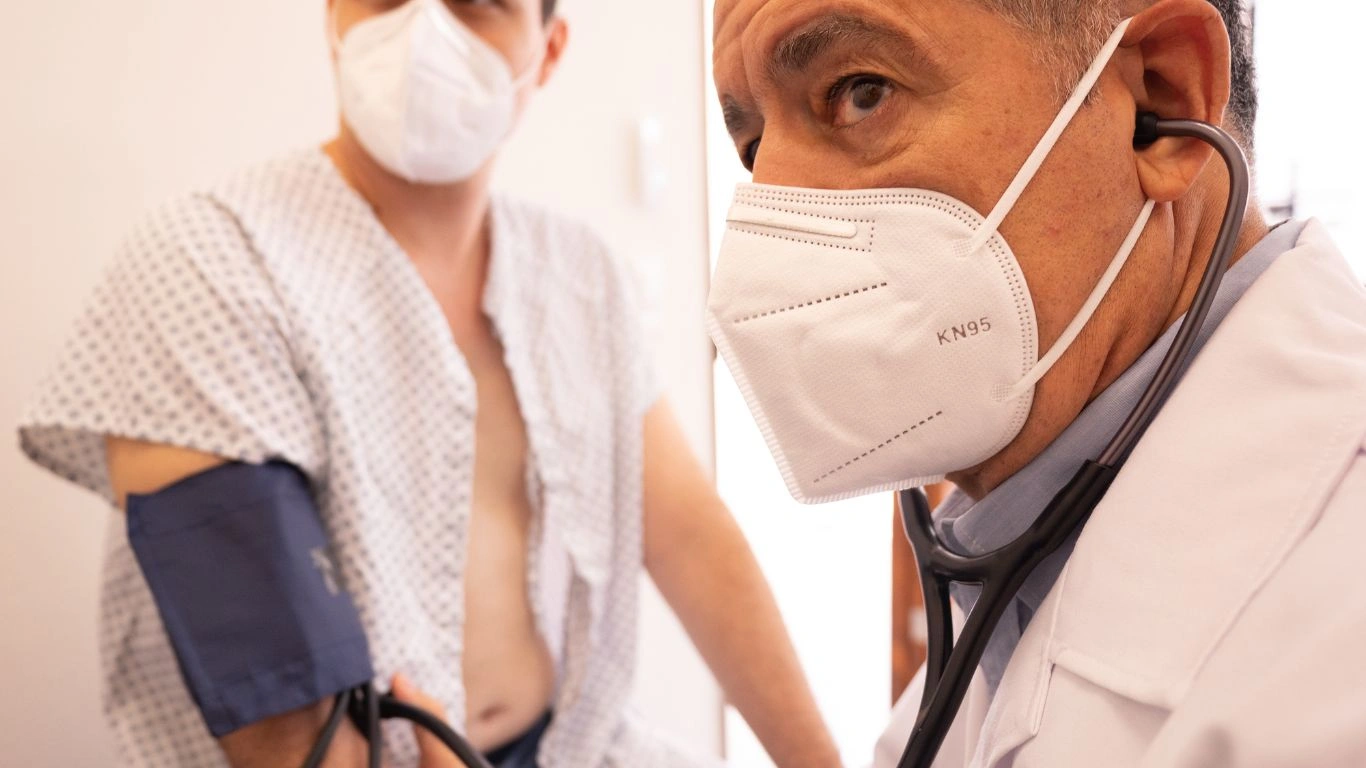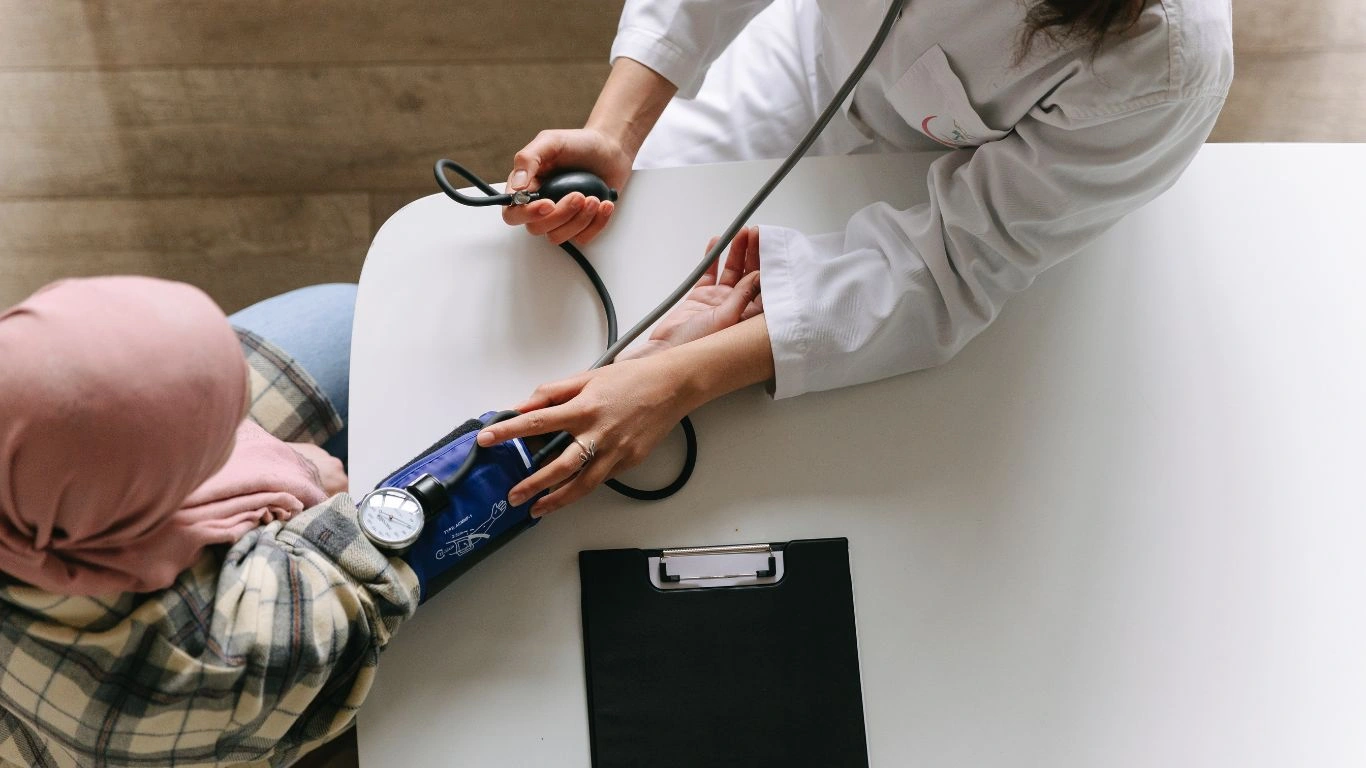Can Omega-3 Lower Blood Pressure Quickly? Powerful Benefits Revealed
Can omega-3 lower blood pressure quickly? That’s a question I get a lot in my practice—and not just from patients. Friends, family, even colleagues will casually ask me over dinner or during a walk. And I get it. High blood pressure can sneak up on you, and when it does, you want fast, natural solutions. As an internal medicine physician with a strong focus on hypertension management, I’ve had years of face-to-face conversations with patients desperate to find out if omega-3s are more than just a heart-healthy buzzword. So let’s break it down—real talk, no jargon overload.
How Omega-3s Affect Blood Pressure

Omega-3 fatty acids are famous for their heart benefits, but when it comes to blood pressure, they’re starting to steal the spotlight. Found mostly in fatty fish like salmon, mackerel, and sardines, omega-3s—especially EPA and DHA—have shown promising results in lowering both systolic and diastolic blood pressure.
Now, let’s not confuse “natural” with “slow.” One of the reasons people ask if omega-3 can lower blood pressure quickly is because they’re looking for alternatives to medications—or maybe just trying to avoid a second prescription. And while I always stress the importance of medical therapy when needed, I’ve seen firsthand how lifestyle changes, especially diet, can move the needle (literally) in the right direction.
What the Research Says (And What I See in Clinic)
Plenty of studies suggest that omega-3s can have a modest but meaningful impact on blood pressure. Some meta-analyses have shown reductions of around 4–5 mm Hg systolic and 2–3 mm Hg diastolic—especially in folks with untreated hypertension. It’s not a miracle cure, but in medicine, that’s actually pretty significant.
But here’s where it gets interesting: I’ve had patients incorporate omega-3-rich foods or supplements into their routine, and within a few weeks, we’ve seen blood pressure improvements that surprised even me. That’s not universal, of course. Every patient is different—age, weight, medications, kidney function—it all matters. Still, I’ve been impressed enough that omega-3s are now part of my go-to lifestyle recommendations.
Can Omega-3 Lower Blood Pressure Quickly? Let’s Get Specific

Let me be honest here: “quickly” is a bit subjective. Are we talking hours, days, or weeks? If you’re expecting omega-3 to work like a fast-acting blood pressure med—pop a capsule and boom, 120/80 by dinner—that’s probably not going to happen. But if you’re consistent with your intake, you may start noticing results in as little as 2–4 weeks. That’s pretty fast in the world of nutrition-based interventions.
Here’s what I often recommend to my patients who want to try omega-3s:
- Start with food first: Aim for 2–3 servings of fatty fish per week. Salmon is my go-to. It’s tasty, versatile, and loaded with DHA and EPA.
- Supplements as a backup: If fish isn’t your thing (or you’re vegetarian), high-quality omega-3 supplements can fill the gap. Look for ones with at least 1000 mg combined EPA/DHA per serving.
- Consistency is key: You can’t just pop omega-3s here and there and expect results. Treat it like medication—take it daily, same time if possible.
- Track your progress: I always advise my patients to monitor their blood pressure at home. It’s empowering and helps us see trends faster.
Why Blood Pressure Responds to Omega-3
Omega-3s help reduce blood vessel inflammation, improve endothelial function (that’s the lining of your blood vessels), and slightly thin the blood, which helps ease the pressure on your arteries. Think of it like oiling the gears in a squeaky bike chain—it may not be dramatic, but it helps everything run smoother.
One of my long-time patients—let’s call him Mike—was the classic picture of metabolic syndrome: elevated BP, borderline cholesterol, and just trying to avoid starting another med. He committed to eating salmon twice a week, added a fish oil supplement, and within a month, we saw his systolic pressure drop by 7 points. Nothing else had changed. I’ve seen enough of these mini-successes to say there’s something real here.
The Role of Diet, Not Just One Nutrient

While omega-3s are a powerful piece of the puzzle, they’re not the whole picture. You can’t eat a tuna steak while still downing processed snacks and expect magic. That’s just not how the body works.
Instead, try pairing omega-3s with a generally heart-smart approach. I usually guide patients toward something like the DASH or Mediterranean diet—less salt, more veggies, healthy fats, whole grains. And of course, don’t forget about movement, sleep, and stress management. It all adds up.
Combining Omega-3 with Other Lifestyle Tweaks

So here’s the deal—omega-3s can help lower blood pressure, yes, but the magic really happens when you layer them with other smart habits. I’ve seen it over and over again in my clinic: the folks who get the best blood pressure results aren’t just doing one thing right—they’re stacking their wins.
One of my patients, a nurse in her 40s juggling shift work and a young family, started taking a fish oil supplement because she couldn’t stand the smell of cooked fish. But she didn’t stop there. She started walking during her lunch breaks, cut back on fast food, and swapped soda for herbal teas. Her numbers went from borderline hypertensive to completely normal in just two months. That’s the power of synergy—small changes, done consistently, create momentum.
Here’s How to Stack the Deck in Your Favor:
- Hydration: Sounds basic, but even mild dehydration can raise blood pressure. Aim for 8–10 glasses of water daily.
- Potassium-rich foods: Think bananas, spinach, sweet potatoes, avocados. They help balance out sodium and support heart health.
- Movement: You don’t need to become a gym rat. Just 30 minutes of brisk walking five times a week can make a big difference.
- Sleep: Poor sleep raises cortisol levels, which messes with your pressure. Prioritize 7–9 hours of quality sleep each night.
And yes, I’ve had patients push back with “But Doc, I’m too busy.” Trust me, I get it. That’s why I always say start with just one thing. One doable tweak. For some, it’s a daily omega-3. For others, it’s finally using that dusty blood pressure cuff at home.
How Much Omega-3 Is Enough?

This is the next logical question I get once someone buys in: “Okay, but how much should I take?”
For general heart health, most guidelines recommend about 250–500 mg of combined EPA and DHA daily. But for blood pressure management, some studies have used doses up to 3000 mg daily with stronger effects. That said, more isn’t always better—especially if you’re on blood thinners or have certain conditions.
Here’s what I typically suggest (always after reviewing the patient’s meds and labs, of course):
- Start at 1000 mg EPA/DHA daily from a reputable supplement.
- Check blood pressure weekly to see if there’s a trend.
- Increase only under guidance if there’s no improvement and no side effects.
I also make sure patients know how to read the label. Just because the front says “1200 mg fish oil” doesn’t mean you’re getting that much EPA/DHA. Flip it over—look at the actual omega-3 content. That little fine print matters.
Pro Tip from the Clinic
Keep your omega-3 supplements in the fridge. It helps prevent the dreaded fishy burps. And take them with meals, especially meals that have some fat—it boosts absorption.
Monitoring Blood Pressure at Home: Why It Matters

Whether you’re trying omega-3s or tweaking your diet, you need to track progress. I always say, “You can’t manage what you don’t measure.” A home blood pressure monitor is one of the best tools in your health toolbox.
Here’s what I ask my patients to do:
- Measure at the same time daily—ideally in the morning before coffee and meds.
- Sit quietly for 5 minutes before checking.
- Record two readings, one minute apart. Take the average.
Some even bring in a logbook during follow-ups, which I love—it helps us make data-driven decisions instead of guessing. And when patients see improvements, they feel empowered. That momentum is gold.
When to Expect Results
Alright, so let’s loop back to the original question: Can omega-3 lower blood pressure quickly? If you’re lucky and consistent, you might notice lower readings within 2–4 weeks. That’s what I’ve seen clinically. But for others, it might take a bit longer—up to 8 weeks or more.
One gentleman I treated—former military, very disciplined—added omega-3s and cut back on processed meats. He didn’t see much change after two weeks and almost gave up. But by week five, his systolic dropped by 6 points and kept improving. Patience paid off.
The key takeaway? Omega-3 isn’t a quick fix like a pill, but it’s not a snail either. It falls somewhere in the middle—subtle at first, but powerful over time if you stick with it and stack it with other healthy choices.
Potential Side Effects and Who Should Be Cautious

Before you rush to stock up on omega-3 supplements, it’s important to talk about safety. In my experience, omega-3s are generally well tolerated, but they’re not without potential side effects or interactions.
Common mild side effects include:
- Fishy aftertaste or burps
- Upset stomach or nausea
- Loose stools in some people
For most folks, these symptoms can be minimized by taking the supplement with food or switching to a high-quality, purified brand. But here’s a critical point from my clinical practice: if you’re on blood thinners (like warfarin or newer anticoagulants), have a bleeding disorder, or are scheduled for surgery, you should definitely check with your healthcare provider first. Omega-3s have a mild blood-thinning effect, and when combined with other meds, the risk of bleeding can increase.
One of my patients, a gentleman in his 60s on aspirin therapy, called me after starting fish oil supplements. He noticed more frequent nosebleeds. We adjusted his dose and closely monitored his labs—always better to be safe than sorry.
Consultation Is Key
Remember, supplements are just that—supplements. They don’t replace prescribed medications unless your doctor says otherwise. Always keep your medical team in the loop when adding something new to your regimen. That way, we can catch any red flags early and tailor recommendations just for you.
Omega-3 Supplements vs. Food Sources: Which Is Better?

In a perfect world, I’d have every patient eating plenty of fatty fish like salmon, sardines, and mackerel. Food is the best way to get your nutrients because you also get all the complementary vitamins, minerals, and antioxidants that work together for heart health.
But let’s be real—many people struggle with taste preferences, allergies, or budget constraints. That’s where supplements come in handy. They provide a concentrated dose of EPA and DHA without the hassle of cooking fish three times a week.
Here’s the bottom line based on my experience:
- Food first: Whenever possible, prioritize whole foods. I often encourage patients to try different recipes, like baked salmon with lemon and herbs, to make it enjoyable.
- Supplements for gaps: If you can’t hit those targets with food, a high-quality fish oil or algae-based omega-3 supplement is a smart addition.
- Balance matters: Don’t rely solely on supplements and ignore other healthy habits. Omega-3s are just one piece of your blood pressure puzzle.
I once had a patient who was a strict vegetarian and struggled to meet omega-3 requirements through diet alone. After starting an algae-based supplement, her blood pressure improved, and she felt more energetic overall.
Final Thoughts on Can Omega-3 Lower Blood Pressure Quickly?
As someone who has spent years managing hypertension, I can confidently say omega-3 fatty acids offer meaningful benefits for blood pressure—but they aren’t a magic bullet. If you’re wondering, can omega-3 lower blood pressure quickly? the answer is yes, in many cases—but “quickly” usually means a few weeks rather than days. The best results come from combining omega-3s with other lifestyle changes like diet, exercise, and stress reduction.
Incorporating omega-3s into your routine is a practical, evidence-backed step that can help you take control of your blood pressure naturally. Just remember, consistency, patience, and professional guidance are your allies on this journey.
References
- American Heart Association
- Centers for Disease Control and Prevention
- National Heart, Lung, and Blood Institute
- American Gastroenterological Association
Disclaimer
This article is intended for informational purposes only and does not replace professional medical advice. Always consult with your healthcare provider before starting any new supplement or making significant lifestyle changes, especially if you have underlying health conditions or are on medication. Individual responses to omega-3 supplementation may vary.

Dr. Gwenna Aazee is a board-certified Internal Medicine Physician with a special focus on hypertension management, chronic disease prevention, and patient education. With years of experience in both clinical practice and medical writing, she’s passionate about turning evidence-based medicine into accessible, actionable advice. Through her work at Healthusias.com, Dr. Aazee empowers readers to take charge of their health with confidence and clarity. Off the clock, she enjoys deep dives into nutrition research, long walks with her rescue pup, and simplifying medical jargon one article at a time.







